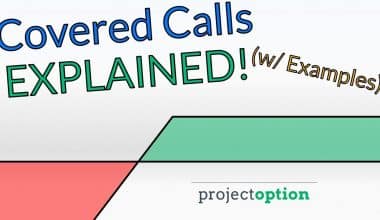Most organizations gauge the success of their events based on two factors: the amount of money raised and the number of people that attend. These elements are interconnected, and you can improve them by selecting the most effective event marketing plan. We examine what event marketing is, why it’s important, and the factors that drive it in this post. We also detail the event marketing agency, strategies, and plans you can use to advertise your next program.
What is Event Marketing?
Event marketing is a strategy that promotes online and offline events through numerous platforms. It involves interactions between firms or brands and their clients or customers. Each event has a particular target demographic, content, and culture, which makes marketing for each one unique. Event marketing can be used for both business-to-business (B2B) and business-to-consumer (B2C) campaigns. Both types of event marketing approaches may be comparable but with various target audiences.
Why is Event Marketing Important?
Event marketing is vital since it is the primary strategy and campaign to raise awareness of your program and entice attendees. It helps guarantee you’re aiming for the proper target group and creating an impression on both existing and new clients or consumers. Event marketing may also create credibility and trust for a brand or organization for future events and develop relationships of customer and company loyalty.
What Factors Influence Event Marketing?
Certain elements influence picking an event marketing strategy, such as:
#1. Budgets
Your budget may influence how, when, and where you publicize an event. Every budget, big or small, can support a well-planned event marketing strategy. Consider exploring your other aspects and developing an in-depth marketing plan for companies with limited resources to maximize your outcomes based on your available cash.
#2. Event importance
Outlining the event’s major objectives, such as why it is important to the organization and your target audience, might affect how you select an event marketing plan. This may provide information on the best sites to promote or the types of incentives to provide.
#3. Availability of resources
Obtaining and utilizing promotional resources may have an impact on your event marketing approach. Access to creative resources, virtual channels, or future customers and clients may assist you in determining which techniques are best suited to your marketing strategy.
#4. Target audience
Understanding who your target audience is, what they do, and what they like will assist you in developing an event marketing strategy. Determining why people choose to attend an event and what experience they hope to gain from it might help you choose a plan.
Event Marketing Strategy
The best way to sabotage your event is to fail to promote it. You’ll have almost no guests, and your event will be a flop. Consider implementing the tactics and ideas we’ve prepared for you to lessen the likelihood of this bleak outcome.
#1. Making the most of your time
You do not have to wait until all of the specifics of an event are finalized before promoting it. Consider creating a pre-event page on your website to publicize the existence of a program. You can update the page with new information as it becomes available.
#2. Promoting through traditional media
Creating a press release to distribute to traditional media channels like newspapers, magazines, radio, and television stations is a tried-and-true event marketing method that can also be effective depending on your target audience. This may enable you to reach consumers where they acquire their news or entertainment information, associating your company or brand with a credible source.
#3. Creating advertising materials
If you have the budget, consider manufacturing promotional hard-copy banners, posters, and billboards or acquiring billboard space. Display your materials at stores, restaurants, community gathering places, or anywhere else your target demographic frequents. This may result in a frequency illusion known as the Baader-Meinhof phenomenon, in which your awareness of something grows and entices you to investigate it deeper.
#4. Social media promotion
Using social media to promote your event can help you attract potential customers or clients who live outside of your immediate geographical area. You may be able to reach people who consume less traditional media, such as a younger target demographic, by using social media. You may also be able to engage with influencers and brand ambassadors through social media to broaden your reach or invite peer recommendations for attendance.
#5. Inviting influential individuals
If your target demographic isn’t yet committed to your company, inviting influential people to your event and publicizing their attendance could be a fantastic marketing technique. Social media influencers, conventional media figures, political leaders, and celebrities may help advertise your event and attract new customers who would not have attended otherwise.
#6. Promoting at other events
Try publicizing your event at other community-organized events, such as festivals, fairs, or other community-organized programs. Run a booth or rent a table and bring flyers, brochures, pictures, videos, or anything else that will assist promote your company and event. This may allow you to meet potential customers in person, demonstrate the brand’s personality, and establish a connection. For events that need registration, consider providing an option to sign up on-site to entice customers to commit to attending before they leave.
#7. Developing an event website
For larger events, consider developing a specialized event website that is separate but linked to your present corporate website. Include any pertinent information, such as the date and time, cost, description, benefactors, potential activities, special guests, and anything else that distinguishes your event. Include the forms or methods for joining up for events that need registration.
#8. Using pop-ups and landing pages online
Consider using pop-up forms on your website to drive potential attendees to a sign-up form or a landing page with event details for smaller-scale events. Although the text and pictures on pop-ups are limited, a landing page can feature all of the event information to encourage attendance.
#9. Making use of email marketing
Consider employing targeted email marketing to update an audience that is already on your mailing list about your event. One of the most direct virtual business-to-consumer marketing tactics is email marketing. Because of its long-form capability, you can include as much or as little information as you need, including images, media, and connections.
#10. Promoting FOMO (Fear of Missing Out)
Fear of missing out, or FOMO, is a word that has gained use in recent years to describe the idea that if you are not associated with a certain organization, project, or event, you are left out or misinformed. Companies can take advantage of this emotion by employing movies, graphics, music, and text to create a character around the event that makes it impossible to ignore.
#11. Soliciting sponsors
Collaborate with other businesses or organizations in your area, such as merchandise companies, restaurants or food providers, entertainment venues, or other important businesses. This may help you to access a larger network of possible participants through their contacts, inflating the event’s prestige or importance.
Event Marketing Agency
An event marketing agency is a business that plans, organizes, and executes events and experiential marketing campaigns on behalf of customers. These firms collaborate with companies, organizations, and brands to create unique experiences that engage customers and promote their products or services.
Event marketing firms may provide a variety of services, such as event design and production, venue selection, vendor management, branding and message, social media and digital marketing, and event analytics and reporting. They may also collaborate with clients to create creative concepts and tactics that are in line with their marketing goals and target demographics.
Trade exhibitions, product launches, corporate events, and experiential marketing campaigns are examples of events that event marketing agencies may specialize in. They may also be experts in specific fields such as technology, healthcare, or entertainment.
Businesses can use an event marketing agency’s knowledge and resources to create compelling marketing experiences that generate brand exposure, client loyalty, and business growth.
Best Event Marketing Agencies.
#1. Bishop-McCann
Bishop-McCann is a world-class meeting, event, and incentive program planner. They are a Kansas City-based advertising agency with offices in Chicago, San Francisco, Minneapolis, and New York.
#2. NEXT/NOW
NEXT/NOW, a creative technology agency based in Chicago was created in 2011 to transform digital event venues. Furthermore, the team of about 20 people takes great pride in producing custom software, marketing services, and AR/VR development to create digital brand experiences for physical places.
#3. Backlash
Backlash is a 2017 experiential marketing consultancy agency with around 29 people. They are situated in London and serve clients in the retail and consumer products industries with experiential marketingand planning.
#4. iMP Experiential
The experiential agency iMP Experiential was created in 2008 and has offices in Leeds and Guildford, England. Furthermore, the company offers small and medium businesses experiential marketing and planning, marketing strategy, and branding services.
#5. Amplify
Amplify, one of the leading event marketing agencies was launched in 2007 in London. Their team of 100 people specializes in event planning and marketing. Furthermore, the business offers marketing solutions, especially to enterprise and mid-market companies.
Event Marketing Plans
Event marketing can be a complicated and time-consuming process, but it is critical to the success of your event. A well-crafted event marketing plan will assist you in reaching your target audience, generating interest in your event, and driving ticket sales.
Do you want to know how to establish event marketing plans? The following stages will assist you in developing successful event marketing plans:
#1. Establish your goals and objectives.
What do you expect your event will accomplish? Are you looking to generate leads, raise brand awareness, or educate your target audience? Once you’ve identified your objectives, you may create a marketing strategy to help you reach them.
#2. Determine your target audience.
Who do you hope to reach with your event? You may modify your marketing messages and methods to reach your target audience once you know who they are.
#3. Create an enticing event message.
What distinguishes your event? What benefit will participants derive from attending? Your event message should explain the advantages of attending your event and address the question, “What’s in it for me?”
Attendees should be able to comprehend what they will get by attending the event.
#4. Select the appropriate marketing channels.
There are numerous marketing channels available, and the best channels will depend on your target demographic and budget. Among the most common marketing channels are:
- Social media
- Email marketing
- Paid advertising
- Public relations
- Content marketing
#5. Get creative with your content.
A content calendar will assist you in planning and scheduling your marketing content ahead of time. This will help you keep on track and promote your event consistently. Your marketing content should be both entertaining and educational. It should be designed to catch attention and urge people to learn more about your event.
#6. Make adjustments as needed.
As you monitor your performance, you may need to revise your marketing strategy. This is normal. The idea is to be flexible and willing to adapt as needed. For example, if your event website is not receiving enough traffic, you may need to tweak your marketing message or target a new audience.
#7. Iterate and follow up with attendees!
After your event, make sure to follow up with attendees. This is an excellent moment to thank them for their attendance and solicit feedback on your event. You may write a thank-you email, conduct a poll, or hold a networking event following the event.
What Are the 5 Cs of Event Marketing?
The five important components that organizations should consider when designing and executing effective event marketing campaigns are referred to as the 5Css of event marketing. These are the elements:
- Concept
- Content
- Context
- Community
- Conversion
What Are Event Marketing Duties?
Event marketing responsibilities vary depending on the scale and complexity of the event, as well as the individual’s function within the experiential marketing team. However, some common experiential marketing responsibilities include:
- Planning and Strategy
- Budget Management
- Vendor and Sponsor Management
How Do You Start an Event Marketing?
There are various steps involved in launching an event marketing campaign:
- Define your objectives
- Identify your target audience
- Develop a concept
- Establish your budget.
- Plan the logistics
- Publicize the event
- Measure success
By following these steps, you can create an event marketing campaign that is targeted, effective, and engaging for your target demographic.
How Do You Succeed in Event Marketing?
Event marketing success demands careful preparation, attention to detail, and a focus on providing participants with a memorable and engaging experience. Here are some critical strategies for event marketing success:
- Define your goals clearly.
- Understand your intended audience.
- Make it an unforgettable experience.
- Utilize technology
- Increase your exposure.
- Measure success
- Follow up with attendees
You can design a successful experiential marketing campaign that produces results and supports your overall marketing and business goals by following these tactics.
What Education Do You Need to Be an Event Marketer?
There are no official educational requirements to become an event marketer, however, a combination of academic education and practical experience can be advantageous. A bachelor’s degree in marketing, business administration, communications, or a similar discipline is common among event marketers. The following are some relevant courses that can help you prepare for a job in event marketing:
- Event Planning
- Marketing Strategy
- Communication
- Digital Marketing
- Design
Where Do Event Marketers Work?
Depending on their area of competence and the specific demands of their company or clients, event marketers can work in a range of sectors and situations. Here are some examples of job opportunities for event marketers:
- Event Planning Companies
- Marketing Agencies
- Corporations
- Nonprofit Organizations
- Government Agencies
What Are Event Management Skills?
The abilities and capabilities required to plan, coordinate, and execute successful events are referred to as event management skills. These abilities can be broadly classified as follows:
- Planning and Strategy
- Project Management
- Communication and Interpersonal Skills
- Creativity and Innovation
- Attention to Detail
- Leadership and Teamwork
- Marketing and Promotion
- Technology and Digital Skills
Conclusion
We’ve explored the event marketing trends, how to rethink your plan, and the most cutting-edge tools you can utilize to remodel your offline and online marketing.
The problem is to figure out how to use event marketing to convey a transforming experience to your attendees. Modern event marketing adds originality, speed, and vitality to your event, making guests want to participate in an experience that will change their lives.
Great marketing cannot save poorly planned events or resurrect bad concepts, but it may be a powerful motivator to modify them. Accepting change in event marketing will improve the industry.
Related Articles
- CREDIT REPORTING AGENCIES: What Do They Do?
- BEST TRADING APP: Best Options for 2023
- PURCHASING POWER PARITY: What Does It Mean?
- WHAT IS A BANK-OWNED PROPERTY? All You Need To Know
- WHAT IS A CONTRACT? All You Need to Know
- WHAT IS INCOME INEQUALITY? All You Need To Know






